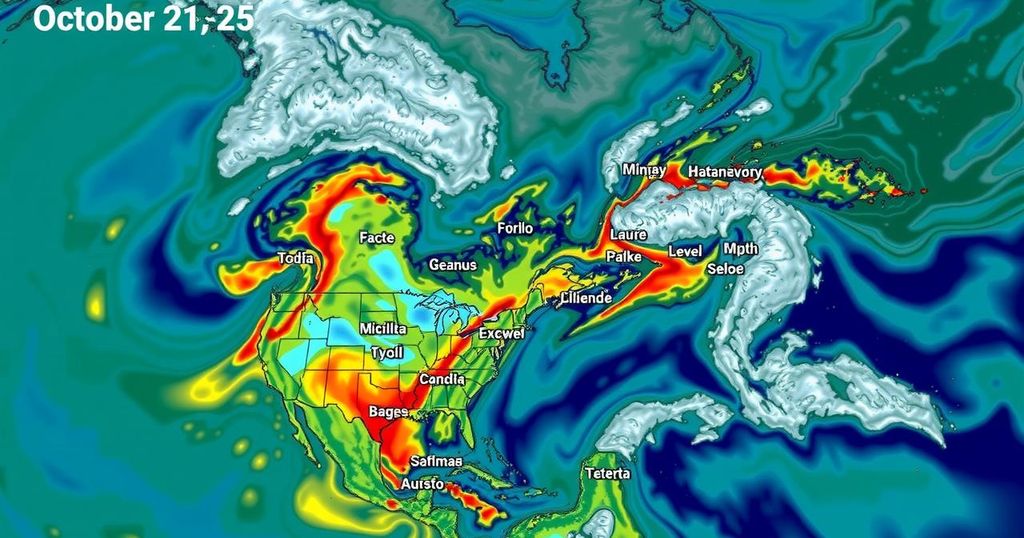Week in Review: Top Climate News for October 21-25, 2024 | Earth.Org

This week’s climate news underscores the inadequate international response to biodiversity and climate change challenges. Over 80% of nations failed to submit biodiversity plans ahead of COP16 in Colombia, prompting calls to action from UN officials. An alarming UN report highlights the need for substantial greenhouse gas emissions reductions to meet Paris Agreement targets. Typhoon Trami struck the Philippines, resulting in fatalities and displacements, while a global coral bleaching event is affecting a record number of countries.
This week’s climate news reflects urgent global challenges and inaction regarding biodiversity and climate change. Over 80% of countries have failed to submit crucial biodiversity plans ahead of the COP16 in Colombia, despite commitments to restore and preserve biodiversity outlined in the Kunming-Montreal Global Biodiversity Framework. Only 32 out of 193 parties submitted their National Biodiversity Strategy and Action Plans (NBSAPs), undermining efforts to halt biodiversity loss. Furthermore, a United Nations Emissions Gap Report indicates that current national pledges are insufficient to achieve the Paris Agreement’s temperature targets. The report warns that a significant reduction of greenhouse gas emissions is necessary, with cuts of 42% by 2030 to meet the 1.5°C goal. During the opening ceremony of COP16, UN Secretary-General António Guterres urged delegates to transform commitments into concrete actions to address the decline in biodiversity. With an alarming state of biodiversity loss, the summit gathers thousands of participants to deliberate on future conservation strategies. In the Philippines, Typhoon Trami caused devastation with at least 14 confirmed fatalities as severe flooding displaced thousands. This disaster highlights the escalating frequency and intensity of typhoons, attributed to climate change. Lastly, the ongoing global coral bleaching event has reached unprecedented levels, impacting 77% of the world’s coral reefs. The National Oceanic and Atmospheric Administration (NOAA) reports that 72 countries are affected, underscoring the escalating crisis for marine ecosystems.
The urgency of addressing climate change and preserving biodiversity is increasingly critical as global temperatures rise and natural disasters become more common. The Convention on Biological Diversity aims to manage these challenges through international frameworks such as the Kunming-Montreal Global Biodiversity Framework. COP16 serves as a platform where countries are expected to present their strategies for conserving biodiversity while the Emissions Gap Report warns of the inadequacies in current national commitments to reduce emissions. Additionally, extreme weather events like Typhoon Trami illustrate the destructive impact of climate change, while coral reefs face mass bleaching at historically significant rates, prompting concern for marine resilience and biodiversity.
In conclusion, the week highlighted critical failures in biodiversity preservation commitments among nations, an urgent call to action on emissions reductions required to meet climate goals, and the devastating impacts of natural disasters exacerbated by climate change. The continued loss of biodiversity, coupled with extreme weather events and global coral bleaching, emphasizes the need for immediate and effective action. International gatherings such as COP16 provide an essential venue for stakeholders to unite in addressing these pressing issues.
Original Source: earth.org






